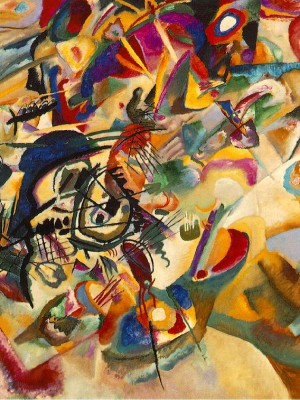Research Seminars
Willson Center Research Seminars support faculty organizing year-long interdisciplinary discussion groups on particular research topics. Seminars bring to campus scholars from other institutions.
2024 – 2025
Cultural and Linguistic Identity in the Americas: Immigration, Migration, Modernity
Organizers: Joshua Bousquette (Germanic & Slavic Studies, Linguistics); Chad Howe (Romance Languages, Linguistics), Frans Weiser (Comparative Literature, LACSI), Jan Zantinga (Management – Terry College)
This forum is an ongoing, interdisciplinary discussion that exists at the intersection of the social institutions and individual agency that determine language use, cultural identity, and the individual’s relationship to the society at large. Open to both faculty and students, this group provides a platform for presentations and productive conversation on the often marginalized immigrant, minority, indigenous and (post-) colonial communities that comprise the fringes of our interdependent, modern society. Inherently interdisciplinary in nature, this forum encompasses aspects of sociology, economics, linguistics, literature and transnational studies.
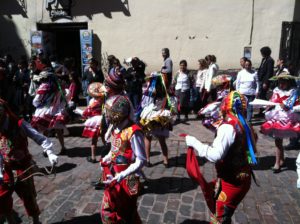
Culture, History, and Territoriality in Latin American Political Economy
Organizers:Pablo Lapegna (Sociology/LACSI), Jorge Derpic (LACSI)
The Latin American and Caribbean Studies Institute (LACSI) connects UGA faculty, students, and Athens’ broader community on issues related to Latin America, the Caribbean, and the Latino/a population in the United States. Since its inception, LACSI has organized and co-sponsored several research, educational, service, and outreach activities to highlight the contributions of Latin American and Caribbean and Latino/a Studies.
The 2024-25 Research Seminar speaker series “Culture, History, and Territoriality in Latin American Political Economy” reflects the interdisciplinary interests of LACSI, and its deep roots in the humanistic social sciences. Its guests scrutinize political and economic dynamics with a focus on everyday interactions, culture, economic history, and territorial identities. Willson Center Research Seminar funds were used to leverage other funding sources to support the visits of three speakers.

Digital Humanities and AI Workshops
Organizers:Katherine Ireland (UGA Libraries)
This series of workshops is organized facilitate digital humanities skills and AI training for graduate students and faculty at UGA. Kaspar Beelen (Technical Lead, Digital Humanities, London School of Advanced Studies), David Beavan (Principal Research Software Engineer, Turing Institute London), and Katherine Ireland, interim head of the DigiLab, will co-lead this training as a set of events at the University of Georgia Libraries, and also host opportunities for faculty to connect and generate new research ideas and collaborations.
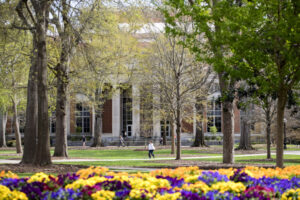
Dirty History: An Interdisciplinary Workshop in Agriculture, Environment, and Capitalism
Organizers: Cindy Hahamovitch (History), Pablo Lapegna (Sociology/LACSI)
Histories of food and farming have emerged as an important topic in recent years. The impact of anthropogenic climate change on global food supply, debates around GMOs and industrial agriculture, food deserts for minority communities in the United States, and the struggles of migrant farmworkers have all sparked new kinds of research at the intersection of history, geography, anthropology, and literary criticism. Humanistic scholars have also crossed the border into scientific fields like ecology, soil science, archeology, plant biology, genomics, and engineering. To provide a space for the further development of interdisciplinary, historically-grounded scholarship around issues of agriculture, environment, and capitalism, the organizers of “Dirty History” have provided a constructive space both online and in real life for both faculty and advanced graduate students to workshop new ideas with other scholars already working in the field.

The Georgia Colloquium in Eighteenth-and Nineteenth-Century British Literature
Organizers: David Diamond (English), Casie LeGette (English)
The Georgia Colloquium in Eighteenth- and Nineteenth-Century British Literature promotes intellectual inquiry across the disciplines and provides a forum for faculty and graduate students within the department of English, and from regional and national universities, to present recent work. The colloquium has brought outstanding, internationally renowned speakers to the university, offering faculty and students the opportunity to engage with leaders in the field.

Postcolonial Collective
Organizers: Alexander Fyfe (Department of Comparative Literature), Aruni Kashyap (Department of English), Jamie McClung (Office of Global Engagement), Esra Santesso (Department of English)
The Postcolonial Collective is a cross-departmental group of faculty and graduate students whose work intersects with the broad field of postcolonial studies. It holds regular meetings and invites local and national scholars to talk with UGA students and faculty. The Collective maintains a list of postcolonial journals with information about their acceptance rates, and a listserv to share ideas, distribute calls for papers in various postcolonial conferences, and announce events on campus. It works to make postcolonial studies more visible on campus, and to attract prospective students into PhD programs offered at UGA.
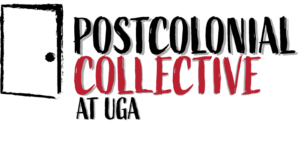
Seminar on Indigenous Methodologies in Instruction
Organizers: Chad Howe (Romance Languages, LACSI), Channette Romero (English, INAS); LeAnne Howe (English, INAS)
The Seminar on Indigenous Methodologies in Instruction (SIMI) addresses three broad questions: How can we center and promote Indigenous cultures and languages at a large land grant institution? What methodological challenges and solutions can we as Indigenous and Non-Indigenous Allies, in collaboration with Indigenous communities, develop and encourage in order to promote Indigenous approaches to teaching and learning across campus? Can we go beyond the term “decolonial” towards thinking about how our scholarship can directly impact real-world Indigenous stakeholders?
To address these issues, SIMI – based on the Quechua word simi, meaning ‘mouth/language’ – meets twice per semester to discuss a shared reading and best practices on incorporating Indigenous methodologies in the classroom. In addition, the seminar hosts scholars who work on seminar-related topics.

Symposium on the Book
Organizers: Miriam Jacobson (English), Anne Meyers DeVine (Hargrett Rare Book and Manuscript Library), Sujata Iyengar (English)
This interdisciplinary seminar explores the nature of the book in all its forms, across time and space. The goals are twofold, to pose fundamental questions such as: what makes a book a book, how have cultural attitudes toward books and book making changed, are digital media recuperating or killing print media? And to investigate and analyze the various media that contribute to the production of books such as ink, e-ink, paper, screen, manuscript, print, pixels, binding, and book arts, as well as the production processes themselves.

2023 – 2024
Dirty History: An Interdisciplinary Workshop in Agriculture, Environment, and Capitalism
Organizers: Cindy Hahamovitch (History), Pablo Lapegna (Sociology/LACSI)
Histories of food and farming have emerged as an important topic in recent years. The impact of anthropogenic climate change on global food supply, debates around GMOs and industrial agriculture, food deserts for minority communities in the United States, and the struggles of migrant farmworkers have all sparked new kinds of research at the intersection of history, geography, anthropology, and literary criticism. Humanistic scholars have also crossed the border into scientific fields like ecology, soil science, archeology, plant biology, genomics, and engineering. To provide a space for the further development of interdisciplinary, historically-grounded scholarship around issues of agriculture, environment, and capitalism, the organizers of “Dirty History” have provided a constructive space both online and in real life for both faculty and advanced graduate students to workshop new ideas with other scholars already working in the field.
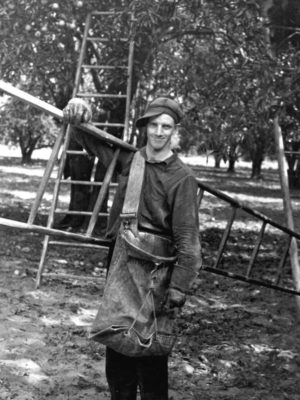
EARTH 16-18 – Race and Ecocriticism, 16th-18th Centuries
Organizers: Sujata Iyengar (English), Debra Bailey Mitchell (CED)
The EARTH 16-18 project is a multi-year, multi-university project investigating race and ecocriticism from the sixteenth to eighteenth centuries. The Willson Center supported a visiting public lecture and advanced seminar by the project’s co-PIs, Emmanuelle Peraldo, professor of British literature and history of 18th-century ideas, and Nora Gailland, associate professor in Early Modern British literature, both from Université Côte d’Azur, Nice, France.
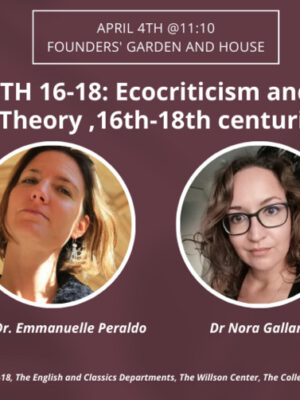
Gender and History Workshop
Organizers: Cassia Roth (History), Jennifer Palmer (History)
For decades, gender history has been an exciting and innovative field of historical research. Its practitioners have opened up new methods of historical analysis and writing as well as considerably broadening ideas about who and what is considered worthy of historical study. This seminar meets on a monthly basis to discuss both foundational and cutting-edge interdisciplinary texts in gender history from various fields including philosophy, literary criticism, and history among others.
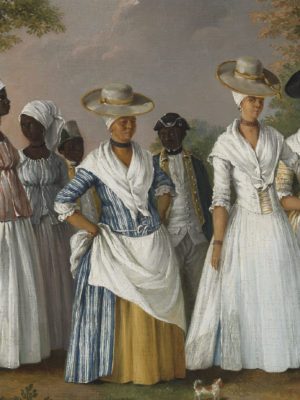
The Georgia Colloquium in Eighteenth-and Nineteenth-Century British Literature
Organizers: David Diamond (English), Casie LeGette (English)
The Georgia Colloquium in Eighteenth- and Nineteenth-Century British Literature promotes intellectual inquiry across the disciplines and provides a forum for faculty and graduate students within the department of English, and from regional and national universities, to present recent work. The colloquium has brought outstanding, internationally renowned speakers to the university, offering faculty and students the opportunity to engage with leaders in the field.
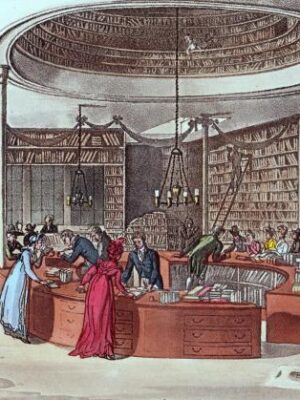
Georgia Workshop on Culture, Power and History
Organizers: Jorge Derpic (Sociology/LACSI), Pablo Lapegna (Sociology/LACSI Studies), Diana Graizbord (Sociology/LACSI)
The Georgia Workshop on Culture, Power and History is one of the established seminars at the Department of Sociology. The workshop provides an interdisciplinary space for research that sees meaning creation (culture) as central to the ways humans create social structure; regards inequality and struggle (power) as central aspects of our social world; and focuses on concrete actors and structures as they develop through time (history). The workshop keeps faculty and graduate students abreast of new research, and provides a low stakes arena in which they can present new ideas. Inviting external scholars to participate in our workshop is also a key opportunity for graduate students to develop networks with faculty beyond the UGA community.

Postcolonial Collective
Organizers: Alexander Fyfe (Department of Comparative Literature), Aruni Kashyap (Department of English), Jamie McClung (Office of Global Engagement), Esra Santesso (Department of English)
The Postcolonial Collective is a cross-departmental group of faculty and graduate students whose work intersects with the broad field of postcolonial studies. It holds regular meetings and invites local and national scholars to talk with UGA students and faculty. The Collective maintains a list of postcolonial journals with information about their acceptance rates, and a listserv to share ideas, distribute calls for papers in various postcolonial conferences, and announce events on campus. It works to make postcolonial studies more visible on campus, and to attract prospective students into PhD programs offered at UGA.
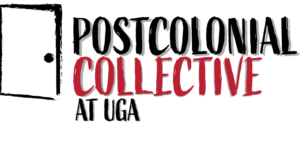
Symposium on the Book
Organizers: Miriam Jacobson (English), Anne Meyers DeVine (Hargrett Rare Book and Manuscript Library), Sujata Iyengar (English)
This interdisciplinary seminar explores the nature of the book in all its forms, across time and space. The goals are twofold, to pose fundamental questions such as: what makes a book a book, how have cultural attitudes toward books and book making changed, are digital media recuperating or killing print media? And to investigate and analyze the various media that contribute to the production of books such as ink, e-ink, paper, screen, manuscript, print, pixels, binding, and book arts, as well as the production processes themselves.
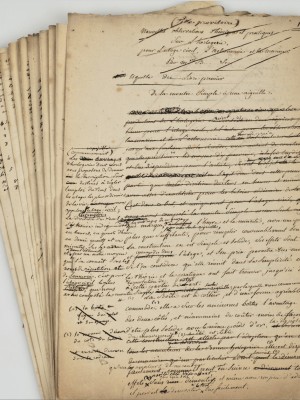
2022 – 2023
Cultural and Linguistic Identity in the Americas: Immigration, Migration, Modernity
Organizers: Joshua Bousquette (Department of Germanic & Slavic Studies, Linguistics Program), Chad Howe (Department of Romance Languages, Linguistics Program), Frans Weiser (Department of Comparative Literature, LACSI), Jan Zantinga (Department of Management, Terry College)
This forum is an ongoing, interdisciplinary discussion that exists at the intersection of the social institutions and individual agency that determine language use, cultural identity, and the individual’s relationship to the society at large. Open to both faculty and students, this group provides a platform for presentations and productive conversation on the often marginalized immigrant, minority, indigenous and (post-) colonial communities that comprise the fringes of our interdependent, modern society. Inherently interdisciplinary in nature, this forum encompasses aspects of sociology, economics, linguistics, literature and transnational studies.
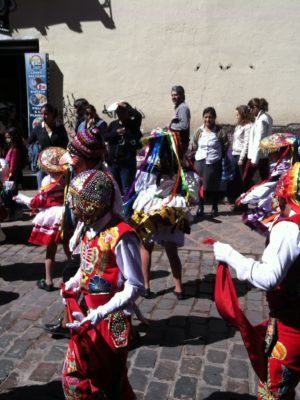
Cultures of Work, Labor, and Community
Organizers: Maryann Erigha (Department of Sociology, Institute for African American Studies)
“Cultures of Work, Labor, and Community” is a speaker series highlighting current research endeavors on cultural, artistic, historical, and contemporary representations of work, labor, and community in the arts and humanities. It is organized by the Race and the African American Image in Society Workgroup, a space for faculty, scholars, students, researchers, and peers to interrogate meanings, intersections, and interpretations of Black images and experiences across the humanities, social sciences, and the arts.
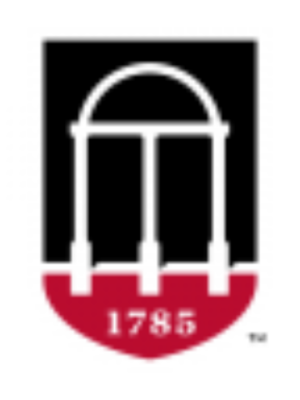
Dirty History: An Interdisciplinary Workshop in Agriculture, Environment, and Capitalism
Organizers: Cindy Hahamovitch (History), Scott Nelson (History), Dan Rood (History), Jamie Kreiner (History), Hilda Kurtz (Sociology, and Pablo Lapegna (Sociology/LACSI)
Histories of food and farming have emerged as an important topic in recent years. The impact of anthropogenic climate change on global food supply, debates around GMOs and industrial agriculture, food deserts for minority communities in the United States, and the struggles of migrant farmworkers have all sparked new kinds of research at the intersection of history, geography, anthropology, and literary criticism. Humanistic scholars have also crossed the border into scientific fields like ecology, soil science, archeology, plant biology, genomics, and engineering. To provide a space for the further development of interdisciplinary, historically-grounded scholarship around issues of agriculture, environment, and capitalism, the organizers of “Dirty History” have provided a constructive space both online and in real life for both faculty and advanced graduate students to workshop new ideas with other scholars already working in the field.

Gender and History Workshop
Organizers: Cassia Roth and Jennifer Palmer (History)
For decades, gender history has been an exciting and innovative field of historical research. Its practitioners have opened up new methods of historical analysis and writing as well as considerably broadening ideas about who and what is considered worthy of historical study. This seminar meets on a monthly basis to discuss both foundational and cutting-edge interdisciplinary texts in gender history from various fields including philosophy, literary criticism, and history among others.

Postcolonial Collective
Organizers: Alexander Fyfe (Department of Comparative Literature), Aruni Kashyap (Department of English), Jamie McClung (Office of Global Engagement), Esra Santesso (Department of English)
The Postcolonial Collective is a cross-departmental group of faculty and graduate students whose work intersects with the broad field of postcolonial studies. It holds regular meetings and invites local and national scholars to talk with UGA students and faculty. The Collective maintains a list of postcolonial journals with information about their acceptance rates, and a listserv to share ideas, distribute calls for papers in various postcolonial conferences, and announce events on campus. It works to make postcolonial studies more visible on campus, and to attract prospective students into PhD programs offered at UGA.

Symposium on the Book
Organizers: Miriam Jacobson (English), Anne Meyers DeVine (Hargrett Rare Book and Manuscript Library)
This interdisciplinary seminar explores the nature of the book in all its forms, across time and space. The goals are twofold, to pose fundamental questions such as: what makes a book a book, how have cultural attitudes toward books and book making changed, are digital media recuperating or killing print media? And to investigate and analyze the various media that contribute to the production of books such as ink, e-ink, paper, screen, manuscript, print, pixels, binding, and book arts, as well as the production processes themselves.

2021 – 2022
Cultural and Linguistic Identity in the Americas: Immigration, Migration, Modernity
Organizers: Joshua Bousquette (Department of Germanic & Slavic Studies, Linguistics Program), Chad Howe (Department of Romance Languages, Linguistics Program), Frans Weiser (Department of Comparative Literature, LACSI), Jan Zantinga (Department of Management, Terry College)
This forum is an ongoing, interdisciplinary discussion that exists at the intersection of the social institutions and individual agency that determine language use, cultural identity, and the individual’s relationship to the society at large. Open to both faculty and students, this group provides a platform for presentations and productive conversation on the often marginalized immigrant, minority, indigenous and (post-) colonial communities that comprise the fringes of our interdependent, modern society. Inherently interdisciplinary in nature, this forum encompasses aspects of sociology, economics, linguistics, literature and transnational studies.

Dirty History: An Interdisciplinary Workshop in Agriculture, Environment, and Capitalism
Organizers: Cindy Hahamovitch (History), Scott Nelson (History), Dan Rood (History), Jamie Kreiner (History), Hilda Kurtz (Sociology, and Pablo Lapegna (Sociology/LACSI)
Histories of food and farming have emerged as an important topic in recent years. The impact of anthropogenic climate change on global food supply, debates around GMOs and industrial agriculture, food deserts for minority communities in the United States, and the struggles of migrant farmworkers have all sparked new kinds of research at the intersection of history, geography, anthropology, and literary criticism. Humanistic scholars have also crossed the border into scientific fields like ecology, soil science, archeology, plant biology, genomics, and engineering. To provide a space for the further development of interdisciplinary, historically-grounded scholarship around issues of agriculture, environment, and capitalism, the organizers of “Dirty History” have provided a constructive space both online and in real life for both faculty and advanced graduate students to workshop new ideas with other scholars already working in the field.

Establishing Sustainable Community-Based Research Partnerships
Organizers: Kevin J. Burke (Language and Literacy Education), Julie Velásquez Runk (Anthropology); Ruth Harman (Language and Literacy Education)
Building on the University’s 2025 Strategic Plan, which foregrounds the need to “strengthen partnerships with communities across Georgia and around the world,” this seminar seeks to convene conversations on the ethical practice of community-based research.
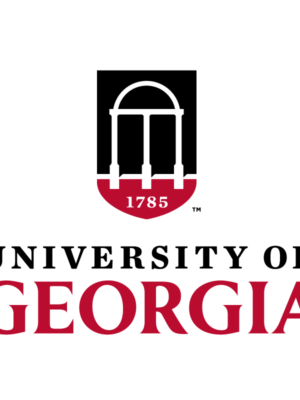
Gender and History Workshop
Organizers: Cassia Roth and Jennifer Palmer (History)
For decades, gender history has been an exciting and innovative field of historical research. Its practitioners have opened up new methods of historical analysis and writing as well as considerably broadening ideas about who and what is considered worthy of historical study. This seminar meets on a monthly basis to discuss both foundational and cutting-edge interdisciplinary texts in gender history from various fields including philosophy, literary criticism, and history among others.

The Georgia Colloquium in Eighteenth-and Nineteenth-Century British Literature
Organizers: Roxanne Eberle (English) and Casie LeGette (English)
The Georgia Colloquium in Eighteenth- and Nineteenth-Century British Literature promotes intellectual inquiry across the disciplines and provides a forum for faculty and graduate students within the department, and from regional and national universities, to present recent work. The colloquium has brought outstanding, internationally renowned speakers to the university, offering faculty and students the opportunity to engage with leaders in the field.
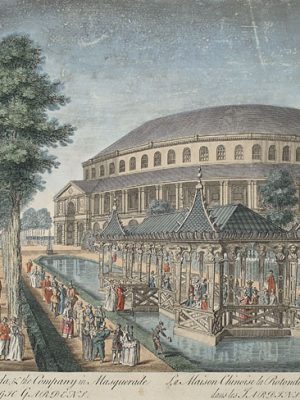
Georgia Workshop on Culture, Power and History
Organizers: Jorge Derpic (Sociology/LACSI), Maryann Erigha (Sociology/AFAM Studies), Joshua Barkan (Geography)
The Georgia Workshop on Culture, Power and History is one of the established seminars at the Department of Sociology. The workshop provides an interdisciplinary space for research that sees meaning creation (culture) as central to the ways humans create social structure; regards inequality and struggle (power) as central aspects of our social world; and focuses on concrete actors and structures as they develop through time (history). The workshop keeps faculty and graduate students abreast of new research, and provides a low stakes arena in which they can present new ideas. Inviting external scholars to participate in our workshop is also a key opportunity for graduate students to develop networks with faculty beyond the UGA community.

Religion and the Common Good
Organizer: Robert L. Foster (Religion)
Religion and the Common Good explores how religious communities reach beyond the bounds of their own community to benefit people of other faiths or of no particular faith. This interdisciplinary initiative builds on existing networks between faculty, students, community members, and other professionals with research, teaching, and service interests in religion’s contribution to the common good.
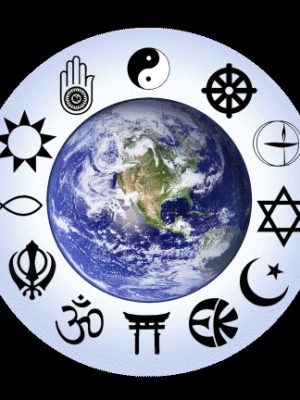
Symposium on the Book
Organizers: Miriam Jacobson (English), Anne Meyers DeVine (Hargrett Rare Book and Manuscript Library)
This interdisciplinary seminar explores the nature of the book in all its forms, across time and space. The goals are twofold, to pose fundamental questions such as: what makes a book a book, how have cultural attitudes toward books and book making changed, are digital media recuperating or killing print media? And to investigate and analyze the various media that contribute to the production of books such as ink, e-ink, paper, screen, manuscript, print, pixels, binding, and book arts, as well as the production processes themselves.

2020 – 2021
The Black Image Research Collective
Organizer: Maryann Erigha (African American Studies and Sociology)
The Black Image Research Collective is a space for faculty, scholars, students, researchers, and peers to interrogate meanings, intersections, and interpretations of the Black image across the humanities, social sciences, and arts. The group aims to become an established seminar within the Institute for African American Studies that fosters a workshop to create a collaborative, interdisciplinary space that highlights innovative research, inquiry, and scholarship across multiple fields such as visual studies, communication, anthropology, sociology, political science, literature, language, music, film studies, journalism, entertainment studies, and media studies.

Cultural and Linguistic Identity in the Americas: Immigration, Migration, Modernity
Organizers: Joshua Bousquette (Department of Germanic & Slavic Studies, Linguistics Program), Chad Howe (Department of Romance Languages, Linguistics Program), Frans Weiser (Department of Comparative Literature, LACSI), Jan Zantinga (Department of Management, Terry College)
This forum is an ongoing, interdisciplinary discussion that exists at the intersection of the social institutions and individual agency that determine language use, cultural identity, and the individual’s relationship to the society at large. Open to both faculty and students, this group provides a platform for presentations and productive conversation on the often marginalized immigrant, minority, indigenous and (post-) colonial communities that comprise the fringes of our interdependent, modern society. Inherently interdisciplinary in nature, this forum encompasses aspects of sociology, economics, linguistics, literature and transnational studies.

Dirty History: An Interdisciplinary Workshop in Agriculture, Environment, and Capitalism
Organizers: Cindy Hahamovitch (History), Scott Nelson (History), Dan Rood (History), Jamie Kreiner (History), Hilda Kurtz (Sociology, and Pablo Lapegna (Sociology/LACSI)
Histories of food and farming have emerged as an important topic in recent years. The impact of anthropogenic climate change on global food supply, debates around GMOs and industrial agriculture, food deserts for minority communities in the United States, and the struggles of migrant farmworkers have all sparked new kinds of research at the intersection of history, geography, anthropology, and literary criticism. Humanistic scholars have also crossed the border into scientific fields like ecology, soil science, archeology, plant biology, genomics, and engineering. To provide a space for the further development of interdisciplinary, historically-grounded scholarship around issues of agriculture, environment, and capitalism, the organizers of “Dirty History” have provided a constructive space both online and in real life for both faculty and advanced graduate students to workshop new ideas with other scholars already working in the field.

Gender and History Workshop
Organizers: Cassia Roth and Jennifer Palmer (History)
For decades, gender history has been an exciting and innovative field of historical research. Its practitioners have opened up new methods of historical analysis and writing as well as considerably broadening ideas about who and what is considered worthy of historical study. This seminar meets on a monthly basis to discuss both foundational and cutting-edge interdisciplinary texts in gender history from various fields including philosophy, literary criticism, and history among others.

The Georgia Colloquium in Eighteenth-and Nineteenth-Century British Literature
Organizers: Roxanne Eberle (English) and Casie LeGette (English)
The Georgia Colloquium in Eighteenth- and Nineteenth-Century British Literature promotes intellectual inquiry across the disciplines and provides a forum for faculty and graduate students within the department, and from regional and national universities, to present recent work. The colloquium has brought outstanding, internationally renowned speakers to the university, offering faculty and students the opportunity to engage with leaders in the field.

Georgia Workshop on Culture, Power and History
Organizers: Jorge Derpic (Sociology/LACSI), Maryann Erigha (Sociology/AFAM Studies)
The Georgia Workshop on Culture, Power and History is one of the established seminars at the Department of Sociology. The workshop provides an interdisciplinary space for research that sees meaning creation (culture) as central to the ways humans create social structure; regards inequality and struggle (power) as central aspects of our social world; and focuses on concrete actors and structures as they develop through time (history). The workshop keeps faculty and graduate students abreast of new research, and provides a low stakes arena in which they can present new ideas. Inviting external scholars to participate in our workshop is also a key opportunity for graduate students to develop networks with faculty beyond the UGA community.

Religion and the Common Good
Organizers: Robert L. Foster (Religion), Joshua Patterson (Institute of Higher Education)
Religion and the Common Good explores how religious communities reach beyond the bounds of their own community to benefit people of other faiths or of no particular faith. This interdisciplinary initiative builds on existing networks between faculty, students, community members, and other professionals with research, teaching, and service interests in religion’s contribution to the common good.

Symposium on the Book
Organizers: Miriam Jacobson (English), Anne Meyers DeVine (Hargrett Rare Book and Manuscript Library)
This interdisciplinary seminar explores the nature of the book in all its forms, across time and space. The goals are twofold, to pose fundamental questions such as: what makes a book a book, how have cultural attitudes toward books and book making changed, are digital media recuperating or killing print media? And to investigate and analyze the various media that contribute to the production of books such as ink, e-ink, paper, screen, manuscript, print, pixels, binding, and book arts, as well as the production processes themselves.

2019 – 2020
Cultural and Linguistic Identity in the Americas: Immigration, Migration, Modernity
Organizers: Joshua Bousquette (Department of Germanic & Slavic Studies, Linguistics Program), Chad Howe (Department of Romance Languages, Linguistics Program), Frans Weiser (Department of Comparative Literature, LACSI), Jan Zantinga (Department of Management, Terry College)
This forum is an ongoing, interdisciplinary discussion that exists at the intersection of the social institutions and individual agency that determine language use, cultural identity, and the individual’s relationship to the society at large. Open to both faculty and students, this group provides a platform for presentations and productive conversation on the often marginalized immigrant, minority, indigenous and (post-) colonial communities that comprise the fringes of our interdependent, modern society. Inherently interdisciplinary in nature, this forum encompasses aspects of sociology, economics, linguistics, literature and transnational studies.

Dirty History: An Interdisciplinary Workshop in Agriculture, Environment, and Capitalism
Organizers: Cindy Hahamovitch (History), Scott Nelson (History), Dan Rood (History), Jamie Kreiner (History), Hilda Kurtz (Sociology, and Pablo Lapegna (Sociology/LACSI)
Histories of food and farming have emerged as an important topic in recent years. The impact of anthropogenic climate change on global food supply, debates around GMOs and industrial agriculture, food deserts for minority communities in the United States, and the struggles of migrant farmworkers have all sparked new kinds of research at the intersection of history, geography, anthropology, and literary criticism. Humanistic scholars have also crossed the border into scientific fields like ecology, soil science, archeology, plant biology, genomics, and engineering. To provide a space for the further development of interdisciplinary, historically-grounded scholarship around issues of agriculture, environment, and capitalism, the organizers of “Dirty History” have provided a constructive space both online and in real life for both faculty and advanced graduate students to workshop new ideas with other scholars already working in the field.

The Georgia Colloquium in Eighteenth-and Nineteenth-Century British Literature
Organizers: Roxanne Eberle (English) and Casie LeGette (English)
The Georgia Colloquium in Eighteenth- and Nineteenth-Century British Literature promotes intellectual inquiry across the disciplines and provides a forum for faculty and graduate students within the department, and from regional and national universities, to present recent work. The colloquium has brought outstanding, internationally renowned speakers to the university, offering faculty and students the opportunity to engage with leaders in the field.

Georgia Workshop on Culture, Power and History
Organizers: Jorge Derpic (Sociology/LACSI), Maryann Erigha (Sociology/AFAM Studies)
The Georgia Workshop on Culture, Power and History is one of the established seminars at the Department of Sociology. The workshop provides an interdisciplinary space for research that sees meaning creation (culture) as central to the ways humans create social structure; regards inequality and struggle (power) as central aspects of our social world; and focuses on concrete actors and structures as they develop through time (history). The workshop keeps faculty and graduate students abreast of new research, and provides a low stakes arena in which they can present new ideas. Inviting external scholars to participate in our workshop is also a key opportunity for graduate students to develop networks with faculty beyond the UGA community.

Music for All: Preparing to Provide Access and Opportunity for All Students
Organizer: Alison Farley (Hugh Hodgson School of Music)
Music for All explores culturally relevant and responsive teaching practices in music classrooms. This seminar provides opportunities to learn from and interact with experts in the field while gaining insight into what it means to be a culturally responsive teacher. Workshops focus on how to utilize student lived experiences to enhance the music making experience and work on identifying their own culture in order to understand the culture of others.

Religion and the Common Good
Organizers: Robert L. Foster (Religion), Joshua Patterson (Institute of Higher Education)
Religion and the Common Good explores how religious communities reach beyond the bounds of their own community to benefit people of other faiths or of no particular faith. This interdisciplinary initiative builds on existing networks between faculty, students, community members, and other professionals with research, teaching, and service interests in religion’s contribution to the common good.

Symposium on the Book
Organizers: Miriam Jacobson (English), Anne Meyers DeVine (Hargrett Rare Book and Manuscript Library)
This interdisciplinary seminar explores the nature of the book in all its forms, across time and space. The goals are twofold, to pose fundamental questions such as: what makes a book a book, how have cultural attitudes toward books and book making changed, are digital media recuperating or killing print media? And to investigate and analyze the various media that contribute to the production of books such as ink, e-ink, paper, screen, manuscript, print, pixels, binding, and book arts, as well as the production processes themselves.

Transnational European History
Organizers: Jake Short and Jennifer Palmer (History)
The Transnational European History seminar meets monthly to discuss recent published work in transnational European history. Participants include faculty whose courses count towards the recently-developed minor in European Studies, and the scholarly engagement with cutting-edge questions fostered in the seminar will also make its way into undergraduate and graduate classrooms.
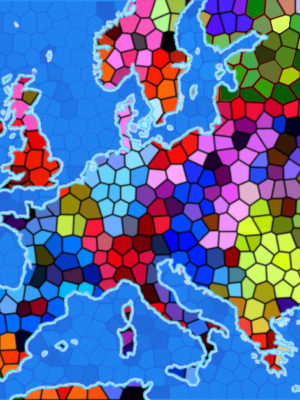
2018 – 2019
The Georgia Colloquium in Eighteenth-and Nineteenth-Century British Literature
Organizers: Roxanne Eberle (English) and Casie LeGette (English)
The Georgia Colloquium in Eighteenth- and Nineteenth-Century British Literature promotes intellectual inquiry across the disciplines and provides a forum for faculty and graduate students within the department, and from regional and national universities, to present recent work. The colloquium has brought outstanding, internationally renowned speakers to the university, offering faculty and students the opportunity to engage with leaders in the field.

Faculty Seminar on the Book
Organizers: Miriam Jacobson (English), Anne Meyers DeVine (Hargrett Rare Book and Manuscript Library)
This interdisciplinary seminar explores the nature of the book in all its forms, across time and space. The goals are twofold, to pose fundamental questions such as: what makes a book a book, how have cultural attitudes toward books and book making changed, are digital media recuperating or killing print media? And to investigate and analyze the various media that contribute to the production of books such as ink, e-ink, paper, screen, manuscript, print, pixels, binding, and book arts, as well as the production processes themselves.

Women in War Workshop: Gender, Literature and Politics
Organizers: Yuanfei Wang (Comparative Literature), Paola De Santo (Romance Languages)
War is often represented as a male-gendered and male-dominated practice, as the opening verse of Virgil’s Æneid attests: “I sing of arms and the man.” The Women in War forum seeks to disentangle the strict association between militarism and masculinity in order to understand how women’s agency, representations, and identities are intimately associated with the human condition, as well as both collective and national identities in wartime. The overarching theme concerns the dual function of women during war: women as the object of description and exploitation in wartime literature and history, and women as subject whose writings treat politics and the practice of warfare.

Cultural and Linguistic Identity in the Americas: Immigration, Migration, Modernity
Organizers: Joshua Bousquette (Department of Germanic & Slavic Studies, Linguistics Program), Chad Howe (Department of Romance Languages, Linguistics Program), Frans Weiser (Department of Comparative Literature, LACSI), Jan Zantinga (Department of Management, Terry College)
This forum is an ongoing, interdisciplinary discussion that exists at the intersection of the social institutions and individual agency that determine language use, cultural identity, and the individual’s relationship to the society at large. Open to both faculty and students, this group provides a platform for presentations and productive conversation on the often marginalized immigrant, minority, indigenous and (post-) colonial communities that comprise the fringes of our interdependent, modern society. Inherently interdisciplinary in nature, this forum encompasses aspects of sociology, economics, linguistics, literature and transnational studies.

Dirty History: An Interdisciplinary Workshop in Agriculture, Environment, and Capitalism
Organizers: Cindy Hahamovitch (History), Scott Nelson (History), Dan Rood (History), Jamie Kreiner (History), Hilda Kurtz (Sociology, and Pablo Lapegna (Sociology/LACSI)
Histories of food and farming have emerged as an important topic in recent years. The impact of anthropogenic climate change on global food supply, debates around GMOs and industrial agriculture, food deserts for minority communities in the United States, and the struggles of migrant farmworkers have all sparked new kinds of research at the intersection of history, geography, anthropology, and literary criticism. Humanistic scholars have also crossed the border into scientific fields like ecology, soil science, archeology, plant biology, genomics, and engineering. To provide a space for the further development of interdisciplinary, historically-grounded scholarship around issues of agriculture, environment, and capitalism, the organizers of “Dirty History” have provided a constructive space both online and in real life for both faculty and advanced graduate students to workshop new ideas with other scholars already working in the field.

Religion and the Common Good
Organizers: Robert L. Foster (Religion), Joshua Patterson (Institute of Higher Education)
Religion and the Common Good explores how religious communities reach beyond the bounds of their own community to benefit people of other faiths or of no particular faith. This interdisciplinary initiative builds on existing networks between faculty, students, community members, and other professionals with research, teaching, and service interests in religion’s contribution to the common good.

Georgia Workshop on Culture, Power and History
Organizers: Jorge Derpic (Sociology/LACSI), Maryann Erigha (Sociology/AFAM Studies)
The Georgia Workshop on Culture, Power and History is one of the established seminars at the Department of Sociology. The workshop provides an interdisciplinary space for research that sees meaning creation (culture) as central to the ways humans create social structure; regards inequality and struggle (power) as central aspects of our social world; and focuses on concrete actors and structures as they develop through time (history). The workshop keeps faculty and graduate students abreast of new research, and provides a low stakes arena in which they can present new ideas. Inviting external scholars to participate in our workshop is also a key opportunity for graduate students to develop networks with faculty beyond the UGA community.

2017 – 2018
The Georgia Colloquium in Eighteenth-and Nineteenth-Century British Literature
Organizers: Roxanne Eberle (English) and Casie LeGette (English)
The Georgia Colloquium in Eighteenth- and Nineteenth-Century British Literature promotes intellectual inquiry across the disciplines and provides a forum for faculty and graduate students within the department, and from regional and national universities, to present recent work. The colloquium has brought outstanding, internationally renowned speakers to the university, offering faculty and students the opportunity to engage with leaders in the field.

Faculty Seminar on the Book
Organizers: Miriam Jacobson (English), Anne Meyers DeVine (Hargrett Rare Book and Manuscript Library)
This interdisciplinary seminar explores the nature of the book in all its forms, across time and space. The goals are twofold, to pose fundamental questions such as: what makes a book a book, how have cultural attitudes toward books and book making changed, are digital media recuperating or killing print media? And to investigate and analyze the various media that contribute to the production of books such as ink, e-ink, paper, screen, manuscript, print, pixels, binding, and book arts, as well as the production processes themselves.

Women in War Workshop: Gender, Literature and Politics
Organizers: Yuanfei Wang (Comparative Literature), Paola De Santo (Romance Languages)
War is often represented as a male-gendered and male-dominated practice, as the opening verse of Virgil’s Æneid attests: “I sing of arms and the man.” The Women in War forum seeks to disentangle the strict association between militarism and masculinity in order to understand how women’s agency, representations, and identities are intimately associated with the human condition, as well as both collective and national identities in wartime. The overarching theme concerns the dual function of women during war: women as the object of description and exploitation in wartime literature and history, and women as subject whose writings treat politics and the practice of warfare.

Cultural and Linguistic Identity in the Americas: Immigration, Migration, Modernity
Organizers: Joshua Bousquette (Department of Germanic & Slavic Studies, Linguistics Program), Chad Howe (Department of Romance Languages, Linguistics Program), Frans Weiser (Department of Comparative Literature, LACSI), Jan Zantinga (Department of Management, Terry College)
This forum is an ongoing, interdisciplinary discussion that exists at the intersection of the social institutions and individual agency that determine language use, cultural identity, and the individual’s relationship to the society at large. Open to both faculty and students, this group provides a platform for presentations and productive conversation on the often marginalized immigrant, minority, indigenous and (post-) colonial communities that comprise the fringes of our interdependent, modern society. Inherently interdisciplinary in nature, this forum encompasses aspects of sociology, economics, linguistics, literature and transnational studies.

Dirty History: An Interdisciplinary Workshop in Agriculture, Environment, and Capitalism
Organizers: Cindy Hahamovitch (History), Scott Nelson (History), Dan Rood (History), Jamie Kreiner (History), Hilda Kurtz (Sociology, and Pablo Lapegna (Sociology/LACSI)
Histories of food and farming have emerged as an important topic in recent years. The impact of anthropogenic climate change on global food supply, debates around GMOs and industrial agriculture, food deserts for minority communities in the United States, and the struggles of migrant farmworkers have all sparked new kinds of research at the intersection of history, geography, anthropology, and literary criticism. Humanistic scholars have also crossed the border into scientific fields like ecology, soil science, archeology, plant biology, genomics, and engineering. To provide a space for the further development of interdisciplinary, historically-grounded scholarship around issues of agriculture, environment, and capitalism, the organizers of “Dirty History” have provided a constructive space both online and in real life for both faculty and advanced graduate students to workshop new ideas with other scholars already working in the field.

Religion and the Common Good
Organizers: Robert L. Foster (Religion), Joshua Patterson (Institute of Higher Education)
Religion and the Common Good explores how religious communities reach beyond the bounds of their own community to benefit people of other faiths or of no particular faith. This interdisciplinary initiative builds on existing networks between faculty, students, community members, and other professionals with research, teaching, and service interests in religion’s contribution to the common good.

Georgia Workshop on Culture, Power and History
Organizers: Diana Graizbord (Sociology/LACSI), Patricia Richards (Sociology/Women’s Studies)
The Georgia Workshop on Culture, Power and History is one of the established seminars at the Department of Sociology. The workshop provides an interdisciplinary space for research that sees meaning creation (culture) as central to the ways humans create social structure; regards inequality and struggle (power) as central aspects of our social world; and focuses on concrete actors and structures as they develop through time (history). The workshop keeps faculty and graduate students abreast of new research, and provides a low stakes arena in which they can present new ideas. Inviting external scholars to participate in our workshop is also a key opportunity for graduate students to develop networks with faculty beyond the UGA community.

Complex Systems at UGA
Organizer: Bill Kretzschmar with the UGA Complex Systems group (Jonathan Arnold; Stephen Berry; John M Drake; Juan B. Gutierrez; Takoi K Hamrita; Philip V. Holmes; Caner Kazanci; Jessica Kissinger; Stephen Miller; K. K. Mon; Pejman Rohani; John R Schramski; Jo Walther)
A number of UGA faculty members have come together to encourage the study of Complex Systems at UGA. “Complex Systems” is about models that look at nature or society as interacting systems with lots of small parts in which simple rules lead to emergence of patterns. Such models are likely to show nonlinear feedback and non-normal statistical properties at multiple scales of analysis, and are often learned from Big Data. Complex Systems thus offers an alternative scientific approach to the cause-and-effect science of Newton and the search for smaller and smaller constituents in modern scientific reductionism.
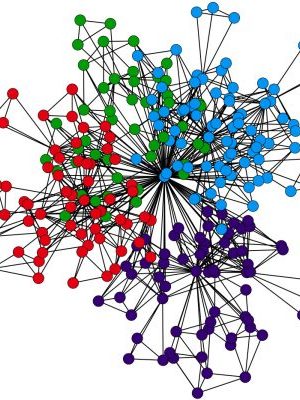
2016 – 2017
The Georgia Colloquium in 18th-and 19th-Century British Literature
Continued from 2014-2015
Organizers: Roxanne Eberle (English), Casie LeGette (English)
The Georgia Colloquium in Eighteenth- and Nineteenth-Century British Literature promotes intellectual inquiry across the disciplines and provides a forum for faculty and graduate students within the department, and from regional and national universities, to present recent work. This year, the colloquium plans to host three outside speakers, and will also organize several discussions of work-in-progress by UGA faculty and graduate students. In the spring of 2017, we will be co-hosting (with the ModSquad) James Chandler, Chair of Cinema and Media Studies and Barbara E. & Richard J. Franke Distinguished Service Professor at the University of Chicago. We also have plans to invite two additional speakers, one who will discuss recent editorial work on the eighteenth century novel, and one who will present recent work on Romanticism and the digital humanities.
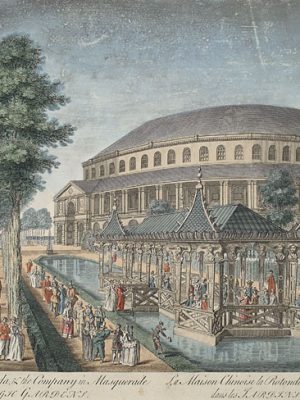
History and Gender Workshop
Continued from 2013-2014
Organizers: Jennifer L. Palmer (History), Kathleen Clark (History)
This seminar examines the historical scholarship on gender as a central matter for research within the History Department — one which cuts across temporal and geographic boundaries, and draws together scholars who study topics from ancient Greece to modern-day Mexico. The History and Gender Workshop at UGA will help to foster common interests based on gender, and to draw scholars from diverse fields.
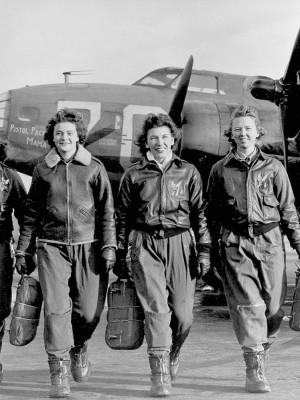
Faculty Seminar on the Book
Continued from 2014-2015
Organizers: Miriam Jacobson (English), Anne Meyers DeVine (Hargrett Rare Book and Manuscript Library)
This interdisciplinary seminar aims to explore the nature of the book in all its forms, across time and space. The goals are twofold, to pose fundamental questions such as: what makes a book a book, how have cultural attitudes toward books and book making changed, are digital media recuperating or killing print media? And to investigate and analyze the various media that contribute to the production of books such as ink, e-ink, paper, screen, manuscript, print, pixels, binding, and book arts, as well as the production processes themselves.
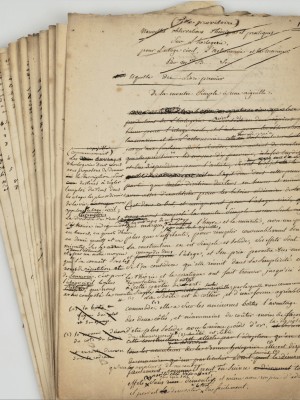
Cultural and Linguistic Identity in the Americas: Immigration, Migration, Modernity
Organizers: Joshua Bousquette (Department of Germanic & Slavic Studies, Linguistics Program), Chad Howe (Department of Romance Languages, Linguistics Program), Frans Weiser (Department of Comparative Literature, LACSI), Jan Zantinga (Department of Management, Terry College)
This forum is an ongoing, interdisciplinary discussion that exists at the intersection of the social institutions and individual agency that determine language use, cultural identity, and the individual’s relationship to the society at large. Modernity, as an expression of the increased interdependence of individuals and social institutions, has accelerated contact between languages and cultures of previously isolated groups, especially within the last century in the American context. These groups include both immigrant communities, and indigenous Native American peoples who became marginalized through the immigration of Europeans to the Americas.
Open to both faculty and students, this group will provide a platform for presentations and productive conversation on the often marginalized immigrant, minority, indigenous and (post-)colonial communities that comprise the fringes of our interdependent, modern society. Inherently interdisciplinary in nature, this forum encompasses aspects of sociology, economics, linguistics, literature and transnational studies.

2015 – 2016
Carribean Studies Group
Organizers: Lesley Feracho (RL), Emily Sahakian (Theatre & Film), Susan Thomas (Music)
The University of Georgia Caribbean Studies Group is an interdisciplinary initiative formed to bring together scholars, students, activists, artists and other professionals with research, teaching, creative and professional interests in the Caribbean (broadly conceived as the circum-Caribbean, which includes parts of the American South). As the committee for the current year, we represent a larger group of more than twenty-five interdisciplinary UGA faculty along with several interested graduate students. Through a series of panels, workshops, conferences and cultural events, we will engage in the sharing of information, discussion of current and historical issues and creation of projects related to the circum-Caribbean across disciplines – from the Humanities, Social Sciences, Agricultural and Environmental Sciences, Journalism, Business, Engineering among others- both within the UGA community and beyond (nationally and internationally). This collaboration across disciplines, professions, languages and cultures will raise greater awareness of different facets of the Caribbean while facilitating enriching programs within and outside of the University of Georgia.
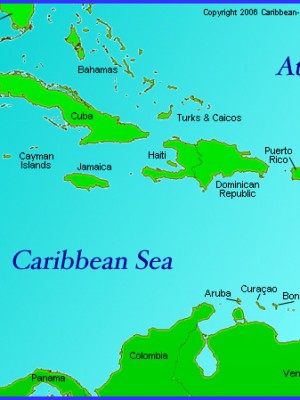
The Georgia Colloquium in 18th-and 19th-Century British Literature
Continued from 2014-2015
Organizers: Roxanne Eberle (English), Casie LeGette (English)
The Georgia Colloquium in Eighteenth- and Nineteenth-Century British Literature is a new speaker program that promotes intellectual inquiry across the disciplines and provides a forum for faculty and graduate students within the department, and from regional and national universities, to present recent work.
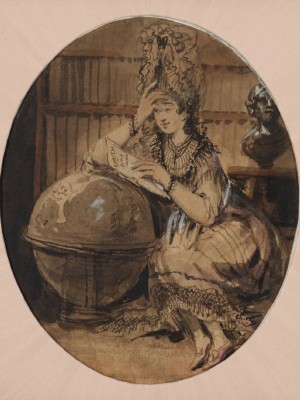
History and Gender Workshop
Continued from 2013-2014
Organizers: Jennifer L. Palmer (History), Kathleen Clark (History)
This seminar examines the historical scholarship on gender as a central matter for research within the History Department — one which cuts across temporal and geographic boundaries, and draws together scholars who study topics from ancient Greece to modern-day Mexico. The History and Gender Workshop at UGA will help to foster common interests based on gender, and to draw scholars from diverse fields.

Faculty Seminar on the Book
Continued from 2014-2015
Organizers: Miriam Jacobson (English), Anne Meyers DeVine (Hargrett Rare Book and Manuscript Library)
This interdisciplinary seminar aims to explore the nature of the book in all its forms, across time and space. The goals are twofold, to pose fundamental questions such as: what makes a book a book, how have cultural attitudes toward books and book making changed, are digital media recuperating or killing print media? And to investigate and analyze the various media that contribute to the production of books such as ink, e-ink, paper, screen, manuscript, print, pixels, binding, and book arts, as well as the production processes themselves.

2014 – 2015
Faculty Seminar on the Book
Continued from 2013-2014
Organizers: Miriam Jacobson (English), Anne Meyers DeVine (Hargrett Rare Book and Manuscript Library)
This interdisciplinary seminar aims to explore the nature of the book in all its forms, across time and space. The goals are twofold, to pose fundamental questions such as: what makes a book a book, how have cultural attitudes toward books and book making changed, are digital media recuperating or killing print media? And to investigate and analyze the various media that contribute to the production of books such as ink, e-ink, paper, screen, manuscript, print, pixels, binding, and book arts, as well as the production processes themselves.

The Georgia Colloquium in 18th-and 19th-Century Literature
Continued from 2013-2014
Organizers: Roxanne Eberle (English), Casie LeGette (English), Chloe Wigston Smith (English)
The Georgia Colloquium in Eighteenth- and Nineteenth-Century British Literature is a new speaker program that promotes intellectual inquiry across the disciplines and provides a forum for faculty and graduate students within the department, and from regional and national universities, to present recent work.
2014-2015 Lectures:
- Paula Backscheider: “Crisis Texts: Staging the Wartime Woman,” Nov. 11
- Andrew Stauffer: “Traces in the Stacks: Digitization and the Future of Nineteenth-Century Print,” Feb. 3
- Danielle Coriale: “Social Zoology, A New Species of Literature,” Apr. 2

Georgia Workshop on Culture, Power and History
Continued from 2013-2014
Organizers: Pablo Lapegna (Sociology and LACSI), David Smilde (Sociology)
This workshop seeks to provide an interdisciplinary discursive space for social scientific research that sees meaning creation (culture) as central to the way humans create social structure; regards structured inequality (power) as a central aspect of the social world; and focuses on concrete actors and structures as they develop through time (history). The workshop provides a space for faculty and graduate students to keep abreast of new research, as well as a low stakes arena in which they can present new ideas.

Workshop in the History and Geography of Food, Place, and Power
Continued from 2013-2014
Organizers: Shane Hamilton (History), Daniel Rood (History), Hilda Kurtz (Geography)
The Georgia Workshop on the History and Geography of Food, Place, and Power serves as a forum in which graduate students, faculty, visiting researchers can present their ideas and arguments with other scholars already engaged with the integuments of food, place, and power. The proposed Workshop brings together UGA faculty and graduate students in a monthly interdisciplinary discussion group. Visitors are invited to share a paper or book chapter in progress.
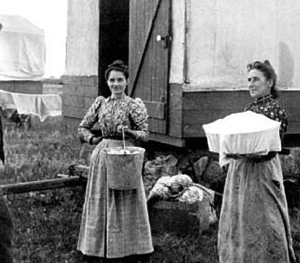
2013 – 2014
Faculty Seminar on the Book
Continued from 2012-2013
Organizers: Miriam Jacobson (English), Anne Meyers DeVine (Hargrett Rare Book and Manuscript Library)
This interdisciplinary seminar aims to explore the nature of the book in all its forms, across time and space. The goals are twofold, to pose fundamental questions such as: what makes a book a book, how have cultural attitudes toward books and book making changed, are digital media recuperating or killing print media? And to investigate and analyze the various media that contribute to the production of books such as ink, e-ink, paper, screen, manuscript, print, pixels, binding, and book arts, as well as the production processes themselves. The seminar takes the form of two symposia, November 16 and February 1.

The Georgia Colloquium in 18th-and 19th-Century Literature
Continued from 2012-2013
Organizers: Roxanne Eberle (English), Casie LeGette (English), Chloe Wigston Smith (English)
The Georgia Colloquium in Eighteenth- and Nineteenth-Century British Literature is a new speaker program that promotes intellectual inquiry across the disciplines and provides a forum for faculty and graduate students within the department, and from regional and national universities, to present recent work.
2013-2014 Lectures:
- Srinivas Aravamudan: “East-West Fiction as World Literature: Reconfiguring Hayy ibn Yaqzan,” Sept. 13
- James Thompson: “Jane Austen, Sociologist,” Oct. 23
- Rachel Teukolsky: “Stereoscopy and the Global Picturesque,” Nov. 14
- Adela Pinch: “Wordsworth in Bed,” Feb. 26

Georgia Workshop on Culture, Power and History
Continued from 2012-2013
Organizers: Pablo Lapegna (Sociology and LACSI), David Smilde (Sociology)
This workshop seeks to provide an interdisciplinary discursive space for social scientific research that sees meaning creation (culture) as central to the way humans create social structure; regards structured inequality (power) as a central aspect of the social world; and focuses on concrete actors and structures as they develop through time (history). The workshop provides a space for faculty and graduate students to keep abreast of new research, as well as a low stakes arena in which they can present new ideas.

Historical Poetics
Organizers: Tricia Lootens (English), Cody Marrs (English)
The seminar in Historical Poetics will hold a symposium from 1 to 5 p.m. on January 25 in the Richard B. Russell Special Collections Libraries Building. The symposium will feature talks by Michael Moon, of Emory University, and Meredith McGill, of Rutgers University.
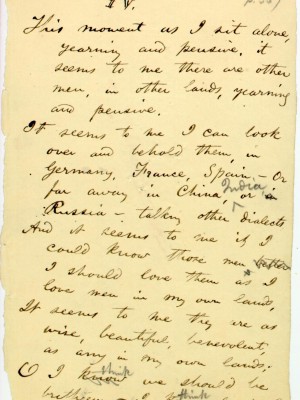
History and Gender Workshop
Continued from 2012-2013
Organizers: Jennifer L. Palmer (History), Kathleen Clark (History)
This seminar examines the historical scholarship on gender as a central matter for research within the History Department — one which cuts across temporal and geographic boundaries, and draws together scholars who study topics from ancient Greece to modern-day Mexico. The History and Gender Workshop at UGA will help to foster common interests based on gender, and to draw scholars from diverse fields.

Workshop in the History and Geography of Food, Place, and Power
Organizers: Shane Hamilton (History), Daniel Rood (History)
The Georgia Workshop on the History and Geography of Food, Place, and Power serves as a forum in which graduate students, faculty, visiting researchers can present their ideas and arguments with other scholars already engaged with the integuments of food, place, and power. The proposed Workshop brings together UGA faculty and graduate students in a monthly interdisciplinary discussion group. Visitors are invited to share a paper or book chapter in progress.

2012 – 2013
The Georgia Colloquium in 18th-and 19th-Century Literature
Organizers: Roxanne Eberle (English), Casie LeGette (English), Chloe Wigston Smith (English)
The Georgia Colloquium in Eighteenth- and Nineteenth-Century British Literature is a new speaker program that promotes intellectual inquiry across the disciplines and provides a forum for faculty and graduate students within the department, and from regional and national universities, to present recent work.
2012-2013 Lectures:
- Keith Wilson: “Regionalism and Consciousness: Thomas Hardy’s Imagined Geographies,” Oct. 23
- Rebecca Stern: “Reading Geologically: Particulate Matter and the Novel,” Nov. 9
- Misty Anderson: “The Scottish Play: Centlivre and The Wonder of Britishness,” Jan. 30
- Jon Mee: “Talking Books: Literature’s Conversable World 1760-1830,” March 7

Religion and Politics in Ancient North Africa
Organizer: Naomi J. Norman (Classics)
This seminar keeps abreast of the latest scholarship on the political, economic, religious, and cultural aspects of ancient North Africa during Punic and Roman occupation (spanning from the ninth century B.C.E. to the seventh century C.E.).
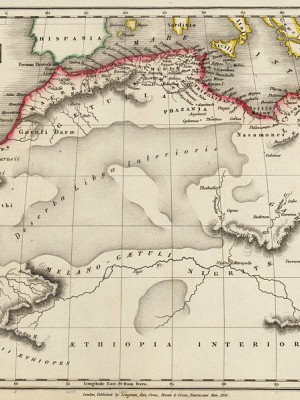
Historical Phenomenon of Modernism
Organizer: Jed Rasula (English)
This seminar investigates the historical phenomenon of Modernism as it was manifested in literature, music, dance, film, and the visual arts. The seminars in Modernism will involve faculty and students from the Lamar Dodd School of Art, the Hugh Hodgson School of Music, and the Departments of English, Comparative Literature, Romance Languages, German and Slavic Studies, Theatre and Film Studies, and History.
